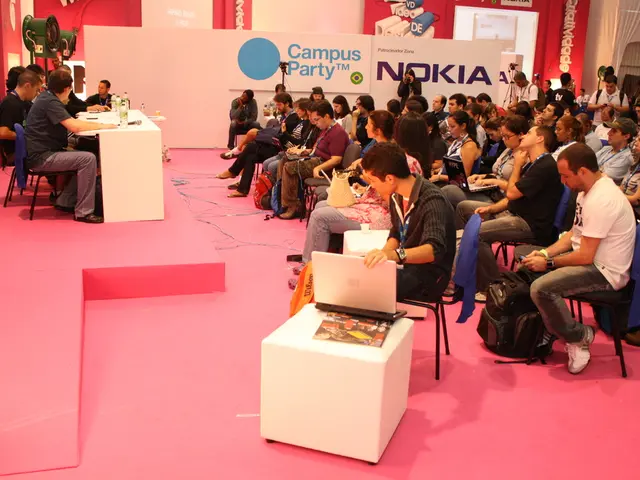Major automakers shift focus on battery investments away from the US due to dwindling electric vehicle incentives
The electric vehicle (EV) industry is experiencing a period of significant change, with several key players adjusting their strategies and investments.
In the United States, General Motors (GM) sold its stake in its Lansing, Michigan plant to its joint venture partner, LG Energy Solution, at the end of last year. This decision comes as part of a broader trend of redefining supply chains in the American EV market.
Across the Atlantic, the UK government is actively supporting EV investments, highlighting the importance of government incentives and cash injections for the industry's growth. A notable example of this support is the $1.4 billion funding deal announced in May for a Japanese battery maker, AESC's gigafactory in Sunderland, UK. This investment is a sign of more investments popping up in the EU and the UK, in contrast to the US's approach of withdrawing funding and incentives for the EV industry.
Meanwhile, Nissan announced two years ago that it would build two EV models at its factory. The gigafactory, which will produce batteries for 100,000 EVs annually and is located near Nissan's plant, is expected to contribute significantly to this effort.
However, the EV forecast for Europe is dropping due to regulatory and market challenges. Evolving EU battery regulations require greater traceability, recycling efficiency, and material localisation, which are making sourcing materials for EV batteries more difficult. Additionally, potential Chinese export threats are adding to the complexity of the situation.
In response to these challenges, some OEMs in America have been leaning more on internal combustion engine (ICE) vehicles. Ford put one of its two planned battery plants on hold indefinitely, and OEMs in America have been redefining their supply chains to favour ICE vehicles.
Elon Musk, CEO of Tesla, paused his plans to build a gigafactory in Mexico in July, citing market uncertainty as a factor. Similarly, the Japanese firm AESC stopped construction on its $1.6 billion battery plant in South Carolina due to the same reasons.
The slow adoption of EVs and changing demand are also having an impact on supplier relations within the US. Studies by Plante Moran suggest that these changes can greatly affect supplier trust. There is a potential for the row back of battery plants and investments to have an effect on supplier relations within the US.
Amidst these changes, Porsche, a car manufacturer who invested money for building a battery factory in England, planned to largely shut down its battery subsidiary Cellforce without producing mass battery cells. The factory was intended for battery production rather than specific vehicle models, indicating a growing focus on battery production independent of vehicle manufacturing.
The US tariffs and slow adoption of EVs are hitting the European vehicle manufacturing sector hard. Europe's EV market faces regulatory and market challenges that are causing a drop in the EV forecast. As the industry evolves, it will be interesting to see how these challenges are addressed and how the landscape of the EV market continues to change.







